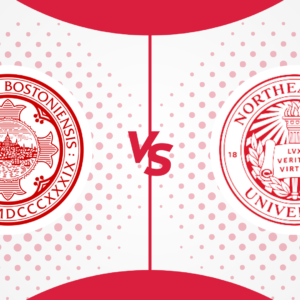Whether we are scrolling through social media, reading a news article or simply talking work with friends, words like ‘machine learning’, ‘artificial intelligence’ and ‘big data’ are now an undeniable part of our vocabulary.
Once dismissed as vague abstractions of a distant future, these words and concepts are now our everyday reality. Technology is changing the way we communicate, the way we study and yes, even the way we work.
Robot rebellions might be confined to our TV screens, but artificial intelligence is clearly not.
The advent of disruptive technologies like the Internet of Things, virtual reality and augmented reality has irrevocably changed businesses and industries. So much so, that these inventions are credited with bringing in the fourth industrial revolution—the technological revolution of today.
With industries increasingly turning to automation and artificial intelligence, it is not uncommon to hear of jobs and professions becoming obsolete. In fact, Forbes has predicted a drastic shift in employment by 2022 due to the development of AI and machine learning.
As a digitized world becomes the norm, the question on every young graduate’s mind is: what is the future of jobs?
While the unstoppable growth of technology has made certain jobs redundant, it has also opened up a plethora of options for those who are willing to change with the times. Take, for instance, jobs in data analysis, machine learning or the data sciences.
Since it is safe to assume that technology is here to stay, technology-based jobs are definitely a sustainable career option. Even today, data science experts are expected to write 60–80 lines of code to create algorithms or develop machine learning tools. And the demand for coders is only set to increase in the future!
After all — alarmist predictions and fear-mongering aside — while machines do the final job, we still need skilled individuals to create, control and work them.
Still fear that technology will render us all unemployable?
Worry not, there is hope yet!
Even though AI is likely to become an integral part of our work life, there are still sectors and jobs that can never be completely automated (emergency medical professionals, hairstylists, designers, writers, dental assistants, vocational nurses, musicians, etc can never be replaced by machines.) While AI can do a lot, the analytical and conceptual heavy-lifting is still likely to be done by humans.
And for the sectors that do embrace AI? Remember that machines work according to the data inputted into their systems. So, a machine can only be as productive and as effective as the data that has been fed into it — a job that will still be done by humans.
The key to surviving in an ever-changing world is the ability to adapt and evolve.
The all-pervasive nature of technology does pose certain challenges, but the only way to overcome them is to keep the fire of curiosity burning bright. World-renowned entrepreneurs and economists too talk about being constantly inquisitive, eager to learn and willing to adapt.
Developing a thirst for knowledge and learning should, therefore, become a part of how you approach your career.
A strong education is one of the best ways to stay ahead of the technologically-driven curve, and educators and educational institutions clearly have their work cut out for them. It is now their responsibility to help students prepare for an ever-changing world. Teachers are in the best position to guide students to professions and careers where human intelligence is still valued at a premium, while also giving them transferable skills that will help them in a digitized workplace. After all, despite the growth of virtual classrooms, there will always be a need for teachers who can equip children with the skills they need to thrive — whether at work or in life. (This is yet another job that machines simply cannot do for us!)
Despite the warnings of a bleak future for humans, most studies show that an increase in AI-assisted programs in the workplace will lead to an increase in individual productivity. This, in turn, will raise the overall productivity of the workplace, and result in efficiency and a reduction in redundant jobs.
With AI taking over the mundane tasks of jobs, humans will also find more time for the creative and conceptual aspects of their job. And, more time to pursue their passions outside of the four walls of an office.
The AI-fuelled future looks bright indeed.







